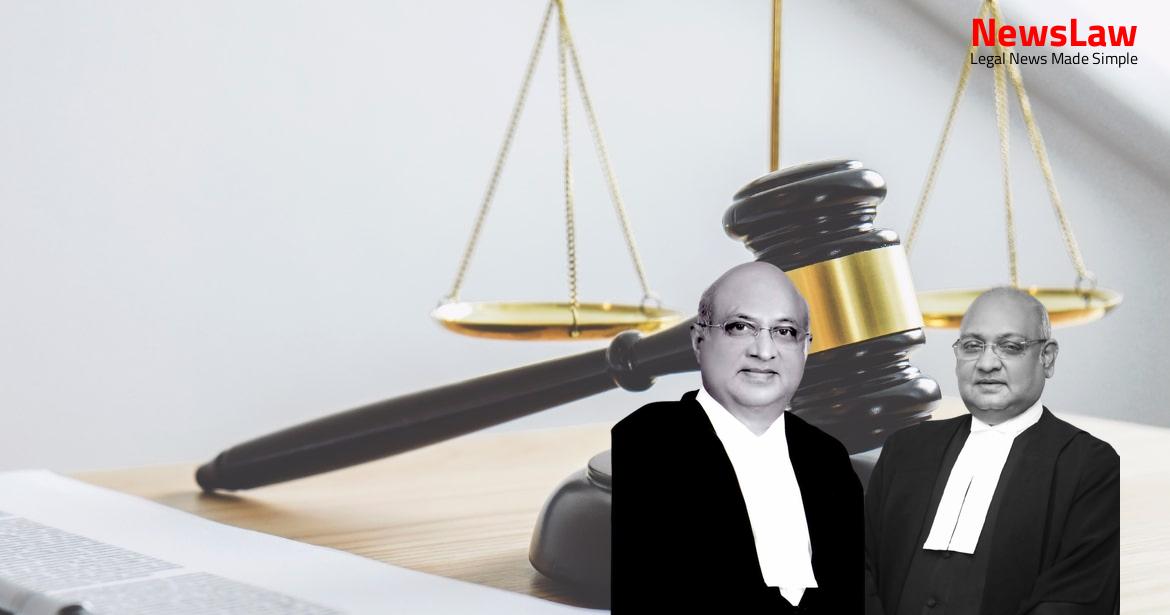A landmark decision by the Supreme Court of India has reshaped the taxation landscape for lease agreements in the case involving a dispute over payments made to a landlord. The Court has remanded the case to the High Court for a fresh hearing, emphasizing the need to address substantial questions of law. This ruling holds significant implications for future tax disputes and clarifies the interpretation of relevant provisions in the Income Tax Act.
Facts
- Appeals filed by the assessee were dismissed
- Appeals filed by the Commissioner of Income Tax were allowed
- Leave granted to proceed with the appeals
Also Read: Supreme Court Judgement: High Court’s Order Upheld in Case of [Respondent] v. [Petitioner]
Analysis
- The High Court did not categorically find that the appeal did not involve any substantial question of law before issuing notice of appeal to the respondent-assessee.
- When the appeal is not admitted, it should be dismissed in limine if no substantial question of law is found.
- The appeal is heard only on the questions framed by the High Court under the specified sections of the Act.
- The High Court failed to frame any question as required by Section 260-A (3) of the Act.
- There is a distinction between questions proposed by the appellant for admission and questions framed by the Court for hearing the appeal.
- The question of whether the payment to the landlord under a lease agreement can be considered as ‘rent’ for the purpose of section 194-I of the Income Tax Act was examined.
- The Court referred to the case of M/s Sushila Ramkrishna vs ITO, which held that if the amount paid to the landlord is not in the nature of ‘rent’, section 194-I would not be attracted.
- It was emphasized that the term ‘rent’ should be understood in a commercial sense and payments made under a lease which are distinct from ‘rent’ may not fall under section 194-I.
- The Court also highlighted that the nature of the payment and the terms of the agreement would determine whether it qualifies as ‘rent’ for the purpose of deduction under section 194-I of the Income Tax Act.
- The decision in M/s Sushila Ramkrishna case was upheld, stating that the payment made to the landlord in a lease agreement may not always be classified as ‘rent’ and hence may not attract section 194-I provisions.
- The respondent had the right to argue at the time of hearing of the appeal that the questions framed were not involved in the appeal.
- The High Court neither admitted the appeal nor framed any question as required by law.
- The High Court did not follow the mandatory procedure prescribed in Section 260-A of the Act.
- The case needs to be remanded to the High Court for hearing afresh on merits.
- The facts of the case are identical to a previous case and should be treated accordingly.
Also Read: Landmark Judgment: Declaration of Coparcenary Property and Invalid Sale Deeds
Decision
- The High Court will decide the appeals strictly according to the law.
- The High Court will not be influenced by any observations made in the impugned order or in this order.
- The impugned order is set aside.
- The appeals are remanded to the High Court for a fresh hearing only after framing appropriate substantial question(s) of law.
- The case is remanded to the High Court, without expressing any opinion on the merits of the issues involved in the appeals.
- The appeals have been allowed.
Also Read: Enhancement of Compensation Awarded in Motor Vehicle Accident Case: Supreme Court’s Judgment
Case Title: RYATAR SAHAKARI SAKKARRE KARKHANE NIYAMIT Vs. ASST. COMMISSIONER OF INCOME TAX C 1 .
Case Number: C.A. No.-004515-004524 / 2019



